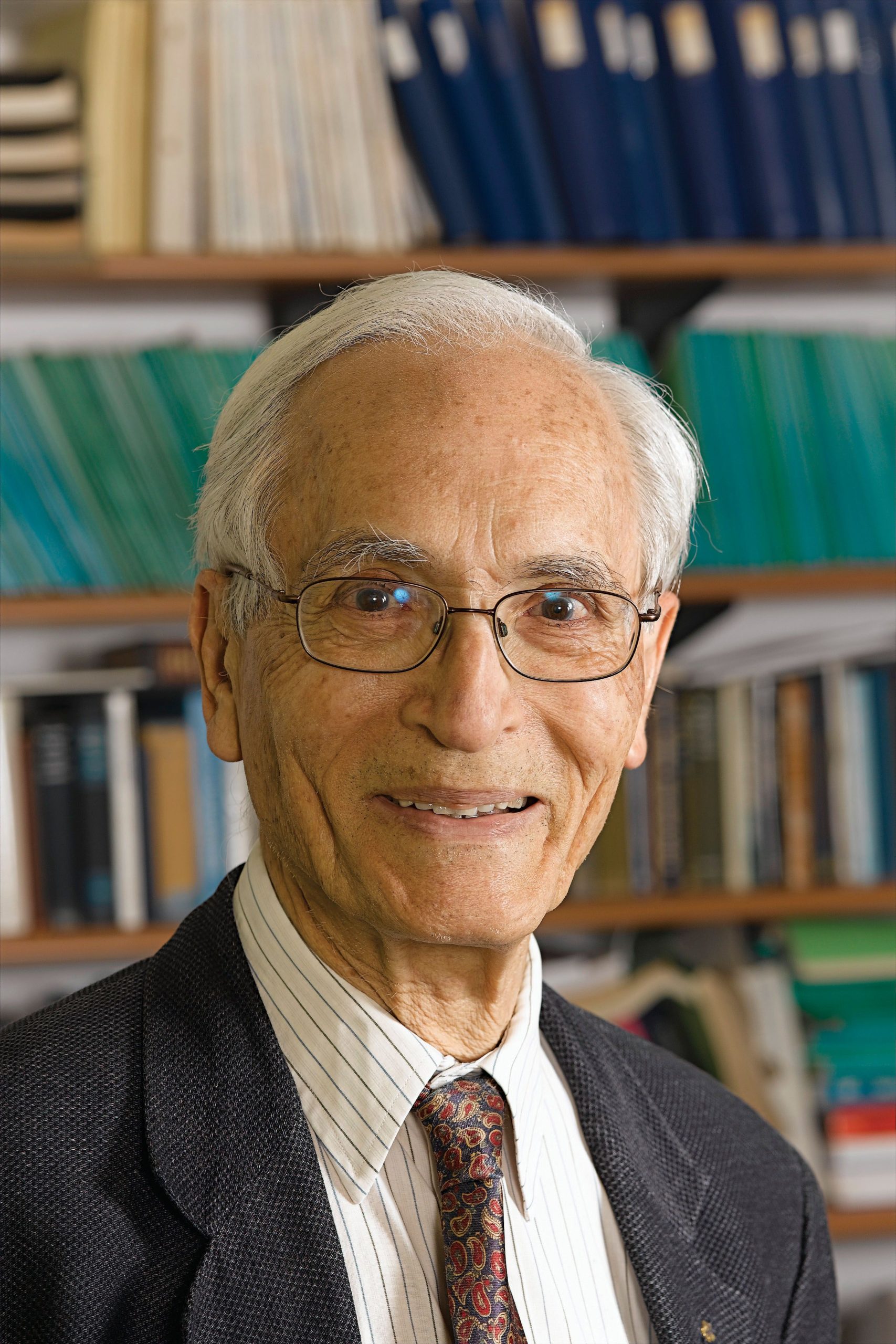IEEE Medal of Honor to Technion Living Legend Dist. Prof. Ziv

Distinguished Professor Jacob Ziv from the Viterbi Faculty of Electrical Engineering at the Technion wins the IEEE Medal of Honor for 2021
Prof. Ziv is the first Israeli to win the Medal of Honor – the most prestigious award given by the IEEE and one of the most prestigious in the world of technology
The IEEE Medal of Honor, which is one of the most prestigious awards in technology, has been granted to Distinguished Prof. Jacob Ziv (Emeritus) of the Viterbi Faculty of Electrical Engineering at Technion – Israel Institute of Technology. Dist. Prof Ziv is the first Israeli to have won this honor from the International Institute of Electrical and Electronics Engineers. Dist. Prof. Ziv is a world pioneer in the field of information theory, and he is co-inventor of both the Lempel-Ziv algorithm and the Wyner-Ziv algorithm. He receives the medal for his “Fundamental contributions to information theory and data compression technology, and for distinguished research leadership.”
IEEE is the world’s largest technical-professional organization, with about half a million members in 150 countries. The association’s Medal of Honor has been awarded to a single winner each year since 1917, in recognition of an exceptional contribution to science and technology. This is IEEE’s most prestigious award and one of the most prestigious in the world of technology, honoring scientists whose exceptional achievements have left a mark for years on technology, society, and engineering.
The winners of the medal have included individuals who have shaped the fields of information, communication, electronics and computing. They include: Claude Shannon, father of information theory; Guglielmo Marconi, inventor of wireless; Gordon Moore, who drafted Moore’s Law; Andrew Grove, who was CEO and chairman of Intel; Harry Nyquist, one of the most prominent figures in communication and system theory; and founders of Qualcomm Dr. Irwin Jacobs and Prof. Andrew Viterbi (who made a significant contribution to the Electrical Engineering Faculty at the Technion which has since been named after him and his late wife Erna).
According to Dean of the Andrew & Erna Viterbi Faculty of Electrical Engineering Prof. Nahum Shimkin: “There is no one more worthy of this award than Distinguished Prof. Ziv. This is a great honor for the Faculty and the Technion as well.”
“This is a great honor for Dist. Prof. Ziv and the Technion,” said Technion President Prof. Uri Sivan. “His groundbreaking scientific and applied contributions are a source of inspiration for the best engineers in the world. His research in the Faculty of Electrical Engineering has brought about a significant revolution that laid the foundations for the Israeli Startup Nation.”
Born in 1931, Prof. Ziv, completed a bachelor’s and master’s degree in electrical engineering at the Technion, followed by a doctorate at MIT (1962). After some eight years of research and development at Raphael and Bell Labs in the United States, he joined the Technion faculty. Over the years he has held senior positions including Vice President of the Technion for Academic Affairs, Chairman of the Planning and Budgeting Committee, and President of the Israeli Academy of Sciences. He is a member of the US National Academy of Sciences and the American Academy of Arts and Sciences.
Dist. Prof. Ziv has won many prestigious awards, including the Israel Defense Award (twice), the Israel Prize in Exact Sciences (1993) the Marconi Award (1995), the Richard Heming Medal (1995), the Shannon Award (1997), the Frontiers of Knowledge Award from the BBVA Foundation (2009), and the EMET Prize (2017).
In 1977, Prof Ziv and Prof. Abraham Lempel of the Faculty of Computer Science published the initial version of the Lempel-Ziv algorithm, and in 1978 the second version. Both versions served as the basis for essential compression technologies including PNG, TIFF, ZIP and GIF and played a major role in PDF (for documents) and MP3 (for music) formats. This is an information compression algorithm that enables lossless compression, regardless of the structure of the data and without prior knowledge of the statistical properties of the data. Based on this algorithm, many of the compression technologies currently used today in memory devices, computers and smartphones were developed.
The Lempel-Ziv algorithm has opened the way for unprecedented technology, enabling the transfer of visual and other information at high speed without loss of information. In 2004, the Institute of Electrical and Electronic Engineers (IEEE) announced that the Lempel-Ziv algorithm is “a milestone in electronics and computer engineering” and that it “made a significant contribution to making the internet an effective means of global communication.”
Dist. Prof. Ziv also participated in the development of the Wyner-Ziv algorithm in Bell Laboratories. This algorithm, which is now part of Microsoft’s operating system, allows the compression of many images from different cameras, and their simultaneous transmission (for example in sports events).

